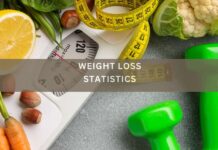Table of Contents
In the ever-evolving world of pharmaceutical manufacturing, companies are under constant pressure to balance high-quality production with cost control. Pharmaceutical consultants play a crucial role in helping organizations navigate these challenges, driving cost efficiency without compromising on product standards. By leveraging their expertise and experience, pharmaceutical consultants offer valuable insights into optimizing operations, improving processes, and ensuring regulatory compliance—all while reducing expenses. In this article, we explore how pharmaceutical consultants contribute to cost efficiency in drug manufacturing and why their involvement is essential for business success.
1. Streamlining Manufacturing Processes
One of the primary ways pharmaceutical consultants drive cost efficiency is by streamlining the manufacturing processes. They analyze existing production lines, identify bottlenecks, and recommend solutions that improve flow and reduce waste. By implementing lean manufacturing principles, consultants help pharmaceutical companies minimize downtime, maximize output, and enhance overall productivity.
For instance, consultants may introduce automated systems, process optimization techniques, or best practices to ensure that each stage of the manufacturing process is efficient and cost-effective. They might also suggest changes to equipment or layout to enhance the flow of materials, resulting in reduced labor costs and faster production times.
2. Enhancing Supply Chain Management
Supply chain management is another critical area where pharmaceutical consultants can make a significant impact on cost efficiency. Consultants analyze the entire supply chain, from raw material procurement to distribution, and identify opportunities for cost savings. They may recommend alternative suppliers, bulk purchasing options, or transportation optimization strategies to reduce material costs.
By improving inventory management and forecasting, consultants help pharmaceutical companies avoid stockouts or overstocking, both of which can lead to unnecessary expenses. Effective supply chain management reduces the risk of delays and ensures that resources are available when needed, thus keeping production costs down.
3. Regulatory Compliance and Risk Management
In the pharmaceutical industry, regulatory compliance is non-negotiable. However, navigating complex regulatory environments can be costly and time-consuming. Pharmaceutical consultants help manufacturers stay compliant with local and international regulations, avoiding fines, recalls, and reputational damage.
By ensuring that manufacturing processes meet regulatory standards from the start, consultants prevent costly mistakes that could arise from non-compliance. They also help streamline the documentation process, reducing the time and effort spent on regulatory filings, audits, and inspections. This not only lowers the direct costs associated with compliance but also mitigates the risk of delays and penalties.
4. Quality Control and Assurance
While quality control is essential for ensuring the safety and efficacy of drugs, it can also be a significant source of expense in the manufacturing process. Pharmaceutical consultants help companies establish or refine their quality control systems, ensuring that products meet the required standards while minimizing waste.
By implementing risk-based approaches to quality control, consultants help companies reduce the costs of excessive testing or rework. They may also suggest improvements in product design or formulation to eliminate defects early in the production process, thereby reducing the need for costly quality assurance interventions later on.
5. Optimizing Energy and Resource Usage
Another area where pharmaceutical consultants contribute to cost efficiency is by optimizing the use of energy and resources. Energy consumption and raw material usage are often among the largest operational costs in drug manufacturing. Consultants can conduct energy audits to identify inefficiencies and recommend changes to reduce energy consumption.
They may suggest the implementation of energy-efficient technologies, such as upgraded HVAC systems or advanced heating and cooling methods, to lower utility costs. Additionally, consultants can assist in finding ways to reduce water, waste, and other raw material usage, which helps minimize the environmental impact while also driving down manufacturing costs.
6. Improving Workforce Productivity
A well-trained and motivated workforce is essential for driving cost efficiency in pharmaceutical manufacturing. Pharmaceutical consultants assess the skills and performance of the workforce and recommend training programs or process improvements that increase productivity.
By introducing better workflows and job rotation strategies, consultants help employees perform their tasks more efficiently, reducing labor costs. They also help create a culture of continuous improvement, where employees are encouraged to contribute ideas for process optimization, further driving cost savings.
7. Implementing Technological Advancements
Technological advancements have revolutionized the pharmaceutical manufacturing industry, and pharmaceutical consultants are at the forefront of helping companies adopt new technologies that reduce costs and improve efficiency. From implementing digital systems for real-time monitoring and control to using artificial intelligence (AI) for predictive maintenance, consultants help companies stay competitive by embracing innovation.
For example, consultants might recommend the use of machine learning algorithms to predict equipment failures, preventing costly downtime. They may also assist in the implementation of automated manufacturing systems that reduce labor costs and improve precision in production.
8. Cost-Benefit Analysis of Outsourcing
Outsourcing certain aspects of the drug manufacturing process can often be more cost-effective than handling them in-house. Pharmaceutical consultants conduct a thorough cost-benefit analysis to determine which processes are better suited for outsourcing. They evaluate factors such as labor costs, capacity limitations, and the availability of specialized expertise to identify areas where outsourcing could lead to savings.
By helping companies choose the right outsourcing partners, consultants ensure that the organization achieves the desired level of cost efficiency without sacrificing quality or control. This also allows pharmaceutical companies to focus on their core competencies while outsourcing non-essential tasks to specialized providers.
Conclusion
Pharmaceutical consultants are invaluable assets to drug manufacturing companies striving for cost efficiency. By streamlining manufacturing processes, optimizing supply chains, ensuring regulatory compliance, and implementing the latest technologies, they help businesses reduce costs while maintaining high standards of quality. Their expertise in risk management, resource optimization, and workforce productivity also contributes significantly to the bottom line.
For companies looking to explore the full potential of cost-effective strategies, seeking professional guidance in pharmaceutical consulting can lead to transformative results. Working with experienced consultants provides a clear roadmap for navigating challenges and achieving sustainable cost savings in a competitive industry.
If you’re interested in learning more, you can explore options for pharmaceutical consulting to see how it can benefit your organization.















